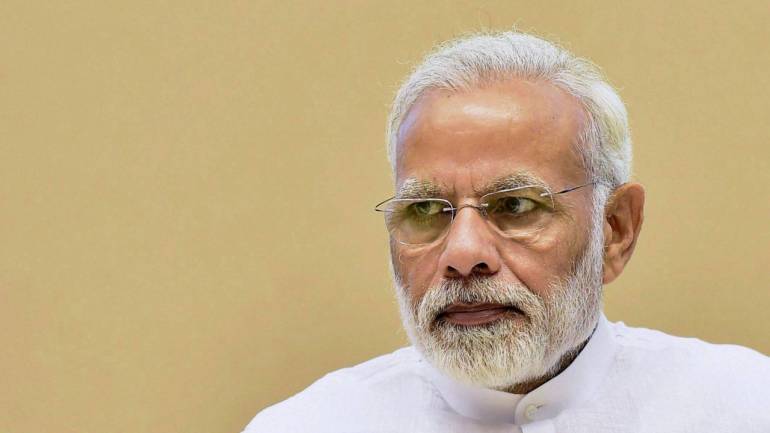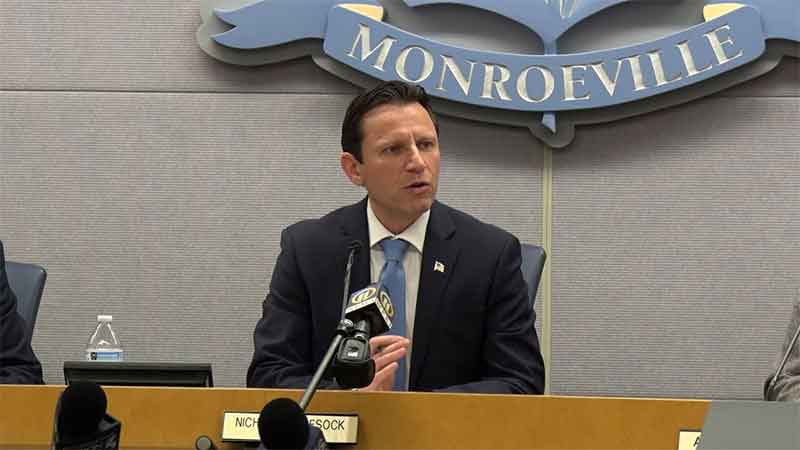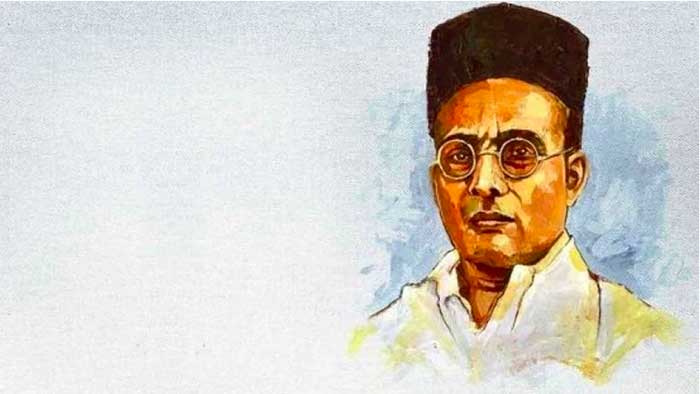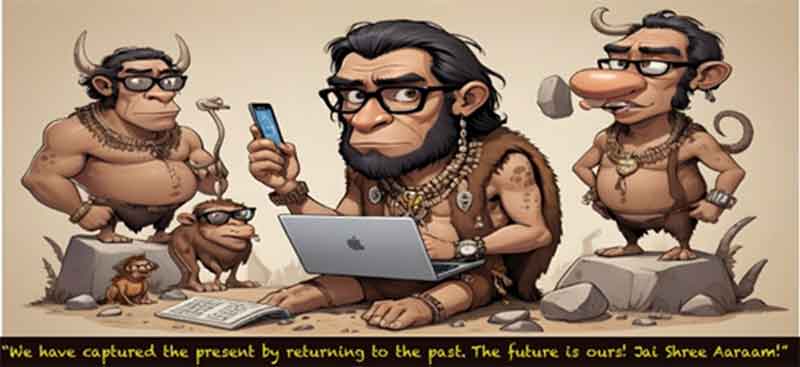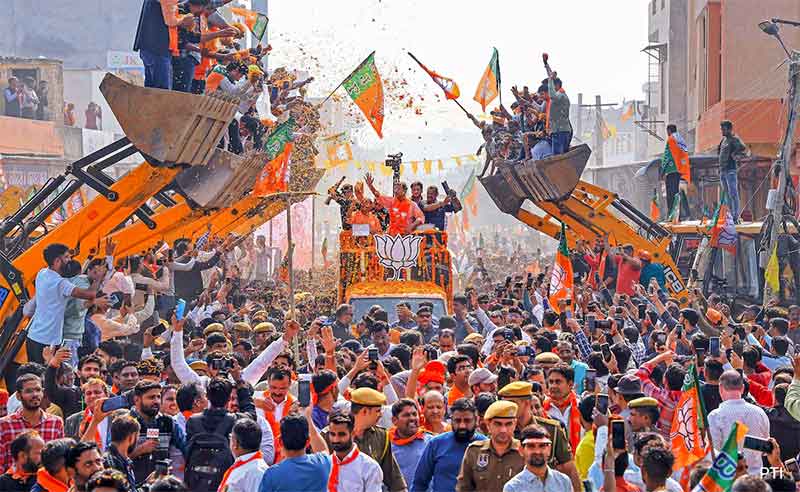
Recently during a book-launch RSS supremo Mohan Bagavat is reported to have regretted that Savarkar has been the victim of an historical conspiracy of sorts.He warned that next,Swami Vivekananda may come in for similar villification.Apparently both are in the same league in his opinion.’Guruji’ Golwalkar had also written in his WE OR OUR NATIONHOOD DEFINED about the exceptional logical clarity with which Savarkar had dealt with the question of nationhood in India.The clarity actually comes from a ruthless Procrustean approach which simply chops off any part of a complex organism that does not fit into a preconceived simplistic definition or design.It may be breath-takingly logical,but it is also quite stifling.
The inconvenient part is the Muslim and Christian populations and cultures that have been integral part of the country for a thousand years or more.
The new brio in the discussion on Savarkar,quite a change from the earlier apologetic hemming and hawing, has probably been kicked off by release of a two-volume work on Savarkar’s life by a scholar who claimed to have ‘objectively” unveiled complexities in a picture purportedly simplified and painted in monochrome by ‘Left-liberal’ historian conspirators.
How ‘objective’ is the biographer cum historian Vinod Sampath?
In an India Today discussion with Shashi Tharoor, he has roundly declared that the thousand years of rule by Muslim kings and emperors were a dark period of Indian history when aliens had systematically destroyed native Indian civilization.
This fits in perfectly with Savarkar’s own highly controversial scheme of Indian history and culture. It thus puts a big question-mark on his ‘objectivity’.He talks about his differences with RSS and such other details which may well be pertinent,but certainly no major revision of known facts.It is not for nothing that the RSS holds him in such high esteem.The treatment of Sampath’s two volumes by metropolitan press with kidgloves could be a factor in this crescendo of praise for a figure darkened by memories of the Gandhi murder.
Savarkar also implied like Sampath that the so-called ‘Muslim rule’ had been a deadly alien invasion into the undefiled eco-system of Indian civilization.The story went that barbarians as they were,the Muslims had little understanding of the character of Indian society and culture,and so set about brutally destroying the whole edifice of native Indian(‘Hindu’) culture.
In the beginning the different rulers of Muslim faith might have fitted the pattern,though even then they showed some caution.Alauddin Khalji is said to have not only flatly rejected the plea of orthodox Muslim clerics to establish Sharia in his empire on the ground that the vast majority of his subjects were not Muslims,but also to have proceeded to threaten them with severe punishment if they persisted.
But as early as Feroze Toghlaq,we find Hindus being appointed to high administrative posts such as governors of provinces and counsellors in his court.Amir Khusrau was writing poetry in an Indian language,creating ghazals.and singing praises of Hindusthan.But the biggest advance in coming to terms with native society and culture was made during the much-maligned Mughal dynasty.
Who was the real founder of the Mughal empire?It was not Babur who only wanted a kingdom to rule after his loss of Ferghana,and always pined for it.It was the intrepid,far-sighted and sagacious Akbar,who had established the long-standing alliance with certain mighty Rajput clans who served as pillars of the empire, tasked the Kayasth Todar Mall with devising the revenue system of the huge empire,and engaged in intense discussions with the learned scholars of Hindu and Jain as well as prominent Christian priests.
There is little extant evidence that he persecuted Hindus.He did not impose the Jizya tax on non-Muslims and the two emperors after him followed that lead.The sincerity and passion Akbar brought into his accommodation of Hindu subjects is exemplified by his commissioning of the monumental encyclopaedia about the heritage and resources of the vast land he was ruling.The great scholar Abul Fazl,Akbar’s Vazir, spent a stupendous amount of time,resources,and energy in compiling the opusTHE AINI AKBARI with the help of native informants and scholars.Its third part itself was a massive work in three volumes which gave copious information on the six great systems of Indian philosophy,the Indian atheists,the Ramayana and the Mahabharata, the Geeta,the ‘Hindu’ idea of ethics and beauty,and so on.I still remember my astonishment at the sheer size and length of the Folio size third volume that I purchased from the sales counter of the Asiatic Society of Kolkata twenty-five years ago.Abul Fazl himself wondered towards the end whether it was his love of learning or his love of this land that sustained him in this gargantuan project.
Akbar would hardly have commissioned it and set aside ample resources for it if he had no genuine interest in and curiosity about such matters.He also thought this enormous repository of knowledge was an indispensable aid in administration of the empire and dealing with the subjects.Himself illiterate he had books read out to him and become proficient in discussing subtle points of theology and ethics with outstanding scholars.This picture is the diametric opposite of the grim hateful image of bigoted saffron propaganda.
Thus the deliberate erasure of that period from India’s heritage and history appears based on both ignorance and deliberate calumny,which are of little help in approach to truth.I do not want to dwell on numerous elements in our native languages and cultures,in our food and clothing(including the love of comfortable pajamas and stitched upper-wear) and shoes and sandals so long not considered unIndian.
So much for the logic of Hindutva as a mode of understanding of our nationhood.
Now for the new fable about Mahatma Gandhi’s advice encouraging Savarkar’s persistent and grovelling mercy petitions to British colonial rulers.Gandhijee was a relatively unknown figure in 1913,the year when Savarkar submitted his first mercy petition.He actually returned to India in 1915.It is unlikely that Savarkar sought his advice at all. Besides,there is one vital detail that casts doubt on this story.Gandhijee always preferred negotiations and legal routes in raising his demands before the Raj.But one thing stands out in his voluminous correspondence with colonial authorities.He does not,repeat not,compromise on his basic principle of opposition to British rule.He was adamant in his assertion that the British had no right to rule India.
Savarkar on the other hand went so far in his mercy petitions in compromise that he volunteered to serve the British rulers in ensuring their hold on power.Gandhijee would have found such a concession disreputable.And it is arguable that Savarkar published his book on Hindutva after his return, joined the Hindu Mahasabha and gave it a definite political direction, in order àto fulfill his pledge to the colonial rulers.
There is a lot of evidence available in books,such as those by Shamsul Islam,on the character and direction of his work after his return.His comments on Gandhijee during the peak of the freedom struggle were full of contempt,loathing and recrimination. His newly varnished image can make sense only if it is perceived as an overweening bold step of Hindutva brigades to take their century-long project to a higher level of assertion and enterprise, spelling grave danger to our real,complex and crisis-ridden democracy.
PS.
I have just come across reports of evidence of such correspondence from Young India in the press. But the first mercy petition was presented in 1913,two years before Gandhijee returned to India and joined the freedom struggle. If there is such evidence,it suggests Savarkar cultivated Gandhijee tactically. When he formulated his definition of the Hindu nation,he openly indicated his break with Gandhijee who firmly held on to the idea of a ‘composite nationality’. They remained at opposite poles.And men under his influence plotted and carried out Gandhijee’s assasination.
Hiren Gohain is a political commentator

